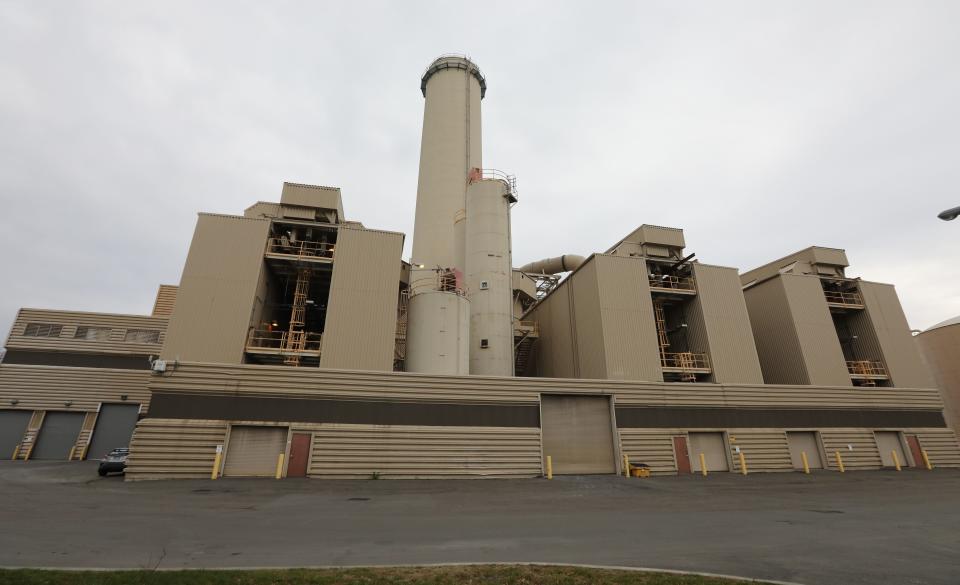We're drowning in plastic in NY. We must stop pollution. Here's how | Opinion
We're drowning in plastic pollution and we're running out of time to fully address this growing crisis. Most importantly, we can't put the industry that created the problem in charge of solving it. So, we need to get this right.
Let's be clear, the entire life cycle of plastics — from cradle to grave — is enormously damaging to our health, environment and climate. They are made from fossil fuels and their manufacture releases prodigious amounts of greenhouse gases and toxic air pollutants that have been linked to several types of cancer as well as reproductive, respiratory and cardiovascular harm.
Plastics are not biodegradable. They have a low recycling rate of less than 6%, frequently ending up in our waterways and landfills and are often burned in heavily polluting trash incinerators like the one right here in Westchester County in Peekskill, a severely overburdened environmental justice community. The trash incinerator — the Wheelabrator — is the number one polluter in the county, and has consistently scored an “F” for air quality by the American Lung Association year after year. Massive amounts of plastic are being burned, including single use plastic packaging and plastic bottles and containers. Burning plastics releases toxic gases like dioxins, mercury and polychlorinated biphenyls into the atmosphere and poses a serious threat to all life. Every year, the Wheelabrator releases hundreds of millions of pounds of greenhouse gases and hazardous air pollutants including formaldehyde, nitrogen oxides and fine particulates — which are linked to stroke, heart disease, asthma, certain cancers and birth defects. Incineration does not replace landfills, but makes them even more dangerous by filling them with the toxic ash burning trash also produces.

Indeed, plastic is the new coal. A recent report indicated that in this past year alone, the production and incineration of plastic will add more than 850 million metric tons of greenhouse gases to the atmosphere, which is equivalent to the emissions from 189 coal fired power plants. In the next 10 years, emissions from the plastics life cycle could reach 1.34 gigatons per year, the equivalent of emissions from more than 295 coal fired power plants.
Thousands of chemicals, including PFAS, formaldehyde and arsenic, are used in plastic production that are linked to certain cancers, neurological and reproductive damage, endocrine disruption and other adverse health effects. Recently scientists have been warning that trash incinerators are contributing to plumes of airborne PFAS that could also be spreading these ‘forever chemicals’ significant distances, contaminating water and soil. Plastics are also breaking down into microplastics that are found in our air, water and soil. Recent studies show that microplastics have been found in our bodies, including the blood, lungs, brains, testes, breast milk and the human placenta. They also bio-accumulate in our food chain.
State Sen. Pete Harckham has stepped up and introduced an environmentally sound Senate Bill S4246, the Packaging Reduction and Recycling Infrastructure Act. Assemblymember Deborah Glick is the sponsor of the companion bill in the Assembly. The bill includes key provisions that reduce plastic packaging by 50% over the next 12 years, ban certain toxic chemicals from being used for packaging such as PFAS ‘forever chemicals,’ and prohibits so called chemical recycling from being counted as recycling. These provisions are core pillars of Harckham’s bill.
Recycling must truly mean recycling, not a corrupted definition that includes waste-to-fuel, waste-to-energy, incineration, pyrolysis, gasification or chemical recycling, dangerous false solutions promoted by the industry. Chemical recycling of plastic into fuel will cause the release of over 18 million tons of greenhouse gases annually and will also release high amounts of hazardous waste and toxic air pollutants including dioxins, styrene, benzene and formaldehyde.
We need strong leadership in New York now! We are depending on Harckham and Glick to stand firm on their bill and ensure no toxics in packaging, no chemical recycling and no loopholes. With so much at stake for New Yorkers, especially right here in Westchester, every measure counts and must be taken to get this right from the start. Our health and our climate are depending on it!
Ellen Weininger is director of educational outreach for Grassroots Environmental Education.
This article originally appeared on Rockland/Westchester Journal News: NY plastic regulation law Peter Harckham

